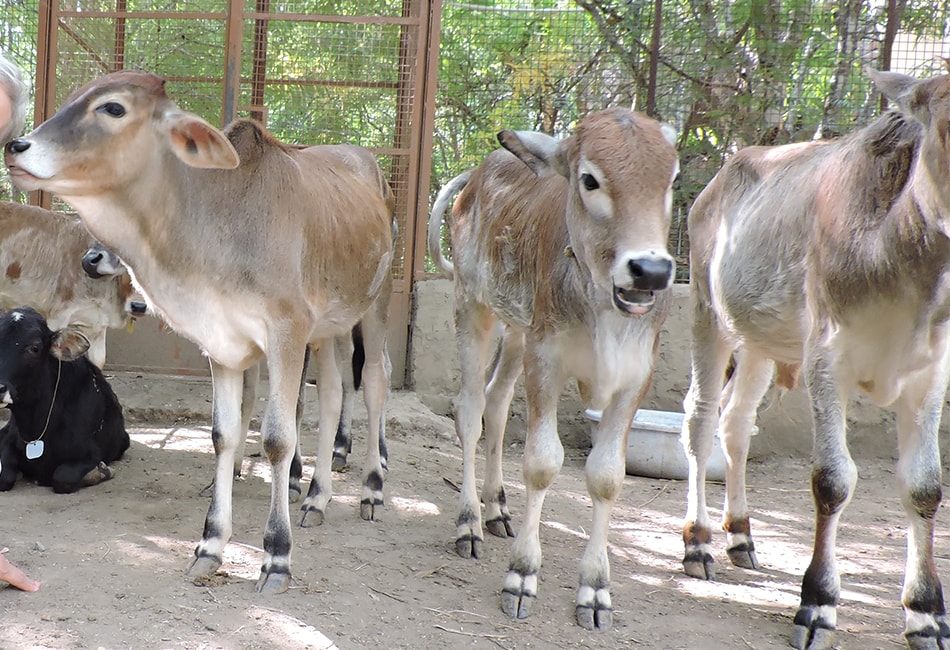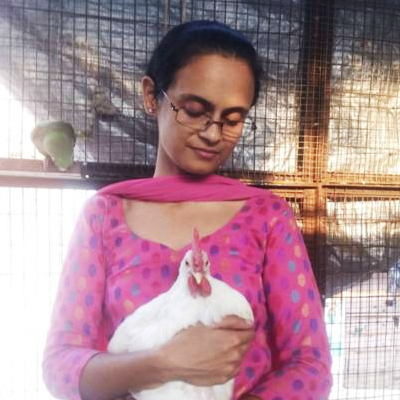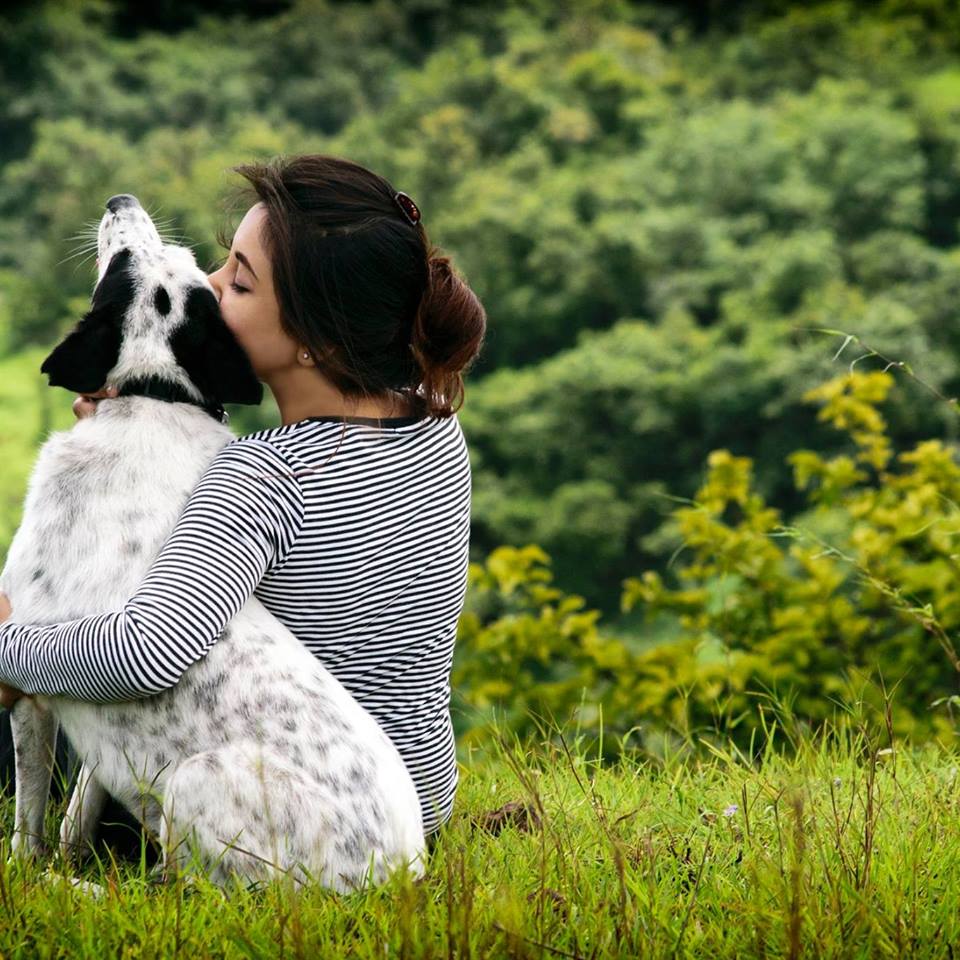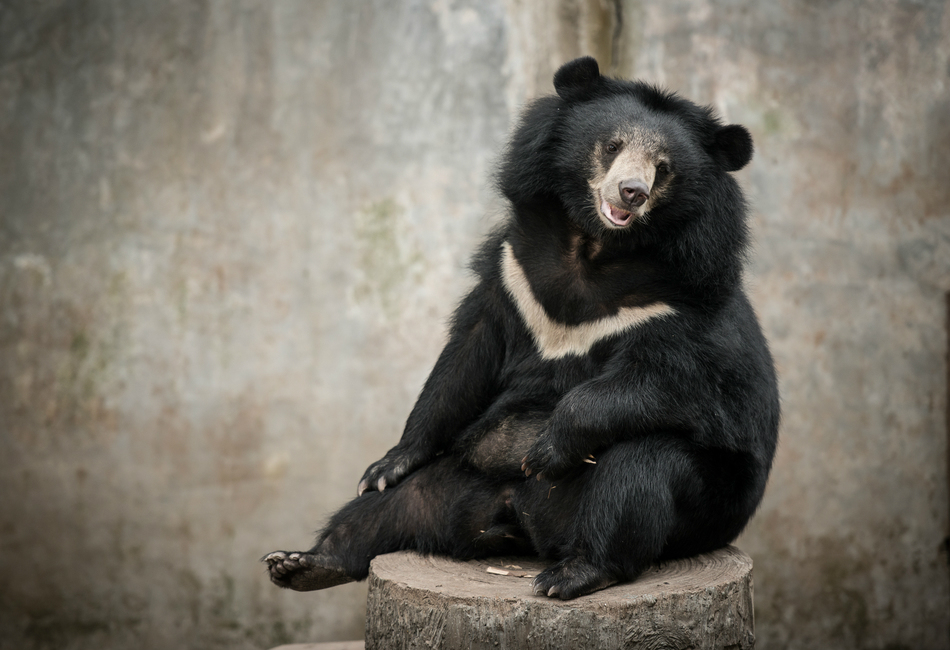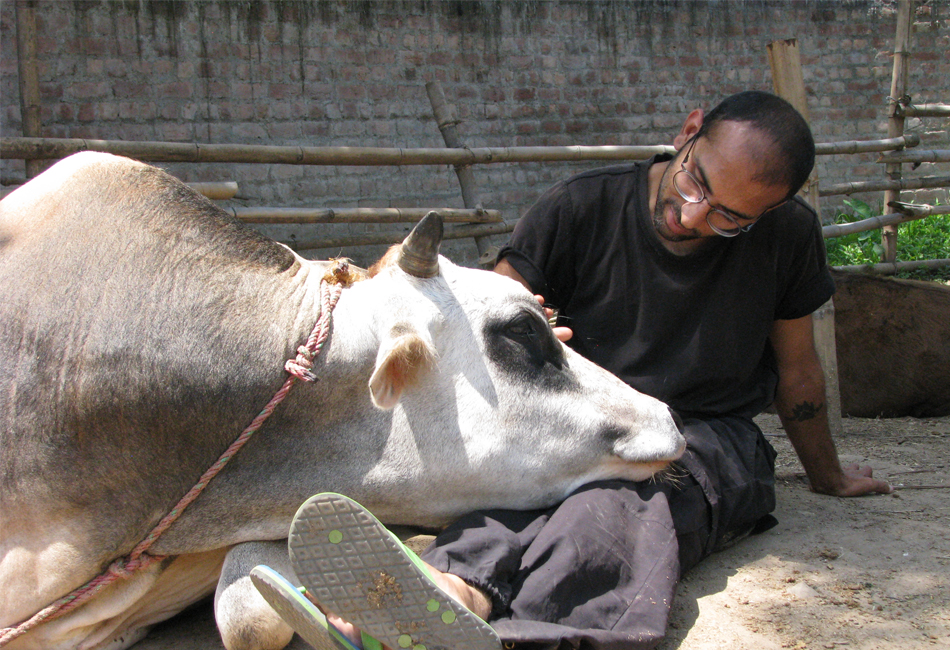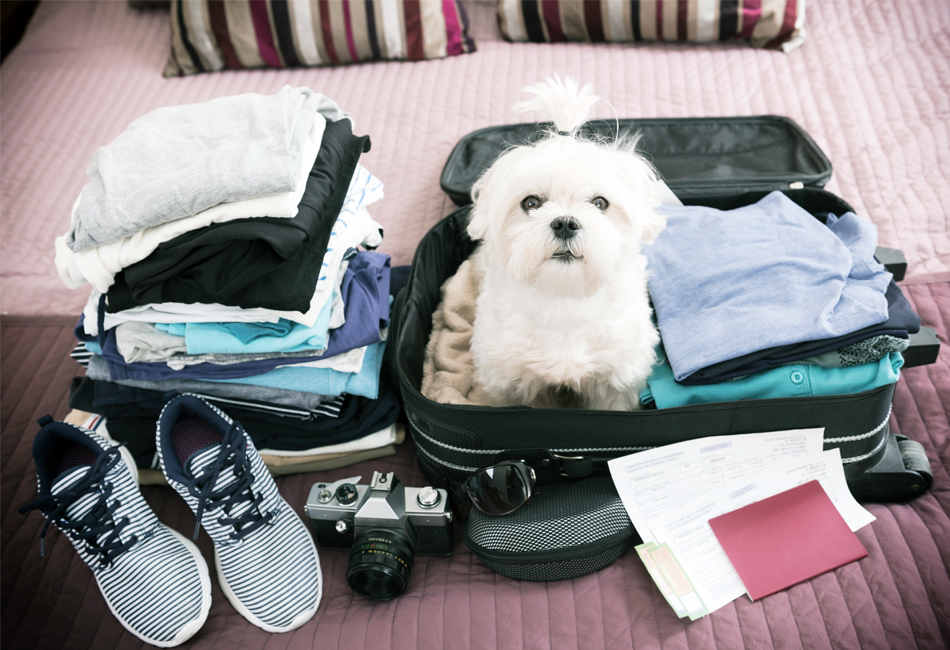Download Free Vegan Starter Kit -

Want An Animal Friend? 8 Things People Usually Ignore Before Becoming Pet Parents
If you are planning on getting a furry companion, there are certain things you have to think about before taking the final decision. You may be making a lot of preparations, but there are some more things most future pet owners forget to consider. Here are some of these points which will allow you to be a better and more prepared pet parent!
1. Ask Yourself: Are you really ready to take the leap?
Getting a pet, while an exciting occasion, needs some serious consideration. Bringing home an animal friend who thinks, feels and loves means saying yes to a five to 10-year-long commitment. Pets are completely dependent on us, and if you think you will be able to give them the time and attention they need and deserve for more than just a few months, then go ahead!
However, if there is a chance you might change your mind or become unable to look after them in the near future, then reconsider your decision. Animals deserve a stable and comfortable life – changing homes often can stress them out and even make them depressed.
But if you really want a furry companion without making the commitment, fostering is always an option! Fostering a rescued animal for a period of time will give you an opportunity to experience what it will be like to have a pet. The duration of fostering can be decided by you. Some people choose to keep an animal for a week, while others can keep them for months before they are ready to be adopted.
.png)
If you want a furry companion without making the commitment, try fostering.
2. Adopt Don't Shop
This is a much-repeated advice, and rightly so. Adopting an animal is a much better option to find a pet, rather than buying them from pet shops. Pet shops are connected to animal breeders who supply baby animals to the shops for profit.
Commercial breeding leads to a population boom of animals who are unable to find a home and end up in animal shelters with minimal and no care. Most of these animals in the shelter are euthanized.
Breeders also put the animals they breed under immense physical and mental stress, especially female animals due to continuous reproduction. After the animals cannot breed anymore and reduce profits, they are often neglected.
Breeders are also responsible for producing “purebred” dogs through inbreeding, something which can cause genetic disorders in animals. Pugs and German Shepherds are a good example of the harmful effects of inbreeding. Pugs’ face anatomy leads to many respiratory issues, and their large heads and small pelvis makes it painful for them to give birth. German Shepherds have bent hind legs and a sloped back, which causes hip joint problems, among other issues.
.png)
German Shepherds have bent hind legs and a sloped back, which causes hip joint problems.
Thus, adopting from shelters or animal rescuers is a much more ethical way of having a pet. Adoption drives also conduct a thorough background check of people looking for pets, thus determining that the animals will be safe and well-cared for in the future.
.png)
Adopting from animal shelters is a much more ethical way of having a pet than buying from pet shops.
3. Research Thoroughly About Your Pet First
Often, people bring home an animal without knowing how to care for them properly. This is followed by trial-and-error incidents, which can be risky for the animal's health and well-being. Sometimes, pets may become distressed if they don't get the care they require, and their human caretakers may not even be aware of what they're doing wrong.
This will help you be prepared and give your furry friend the best care possible. It will also prep you better for any emergency situations that may arise by being able to recognize abnormal behaviour or eating patterns.
The cherry on top is knowing the right way to communicate with your animal companions and build a strong bond of mutual love and trust!
.png)
Conducting proper research about the species and breed of the animal you wish to bring home is a must.
4. Remember: Small Pets Are Not Always Easier!
Getting a small pet such as guinea pigs, rabbits, hamsters, or fish is often seen as an easier alternative to getting a cat or a dog. They are sometimes called "starter pets" for someone who has never had a pet before.
However, just because an animal is small does not mean they don't require the same level of care and comfort. In fact, smaller animals are more fragile and require a great deal of attention – at times even more than dogs. Guinea pigs, rabbits and hamsters need a proper diet, hygienic living conditions, and appropriate temperatures to be able to live a long life. Fish need appropriate tanks as per their size as well as regular cleaning to thrive as pets.
Moreover, small pets are prey animals and have natural instincts to hide and be fearful of larger creatures. Thus, they need a lot of space and patience before they can get comfortable with you. Picking up rodent pets if they're trying to run away can distress them, which can sometimes lead to them having a stroke or heart attack out of panic.
This is why it is not a great idea to get small pets if you have toddlers at home, as children may not be able to notice these signs of distress and may accidentally mishandle the animals.
Lastly: don’t keep them caged! While smaller pets do not need as much space as a dog would, it is important to allow them some roaming space and not keep them in small cages. Moreover, animals like guinea pigs are sociable and need companions - getting a single guinea pig might not be the best idea.
Going back to the last point, research is important! If you conduct proper research on your future pet, it is very much possible to have small pets who are happy and comfortable with you, as long as you are patient and attentive.
.png)
Smaller animals are more fragile and require a great deal of attention – at times even more than dogs.
5. Make Sure You Will Be Able To Give Your Pet A Comfortable Environment
Animals are sensitive to sounds and smells. If placed in a loud and bustling environment, they might experience stress which can greatly affect their mental well-being. Moreover, large animals need a lot of space to roam and explore, and denying them that opportunity can affect their moods, behaviours, and even physical health.
Thus, it is important to consider whether you will be able to offer them a comfortable living environment. This includes a peaceful and sanitary environment, fresh food and water, as well as enough space. Getting a dog only to keep them on a leash all day is classified as animal abuse in many countries. They should be allowed the freedom to move as they please.
If you are unable to offer them a lot of roaming space inside the house, make sure you take them on regular walks to allow them to socialize with other people as well as pet friends.
.png)
Give your pet a peaceful and sanitary environment, fresh food and water, and enough space.
6. Pets Aren’t Showpieces
While it may be exciting to befriend animals and keep them in your house, there are certain animals that do not fit the role of pets. Forcing these animals to be your pets can be extremely harmful for both you and them.
This includes wild or exotic animals such as snakes, reptiles or primates. Most of these animals are removed from their natural habitats and sold illegally for profit. They do not thrive in human-made environments and need to be a part of the natural world. It is not only pertinent for their well-being, but also for the well-being of the ecosystem.
Animals are sentient beings and have the ability to feel emotions. Immense distress in unfamiliar environments can lead them to lash out and harm themselves and other people.
Moreover, training your animals to perform tricks unless they happily engage in it without reinforcement can lead to potential mistreatment. This includes using negative reinforcements such as hitting or shock collars, or the general stress a shy animal may go through while performing tricks.
Allowing your pet to keep themselves entertained as they wish will lead to a much happier and healthier animal. They are not toys or showpieces, but living, breathing creatures who also look for the same love and care humans do.
.png)
"Exotic pets" do not thrive in human-made environments and need to be a part of the natural world.
7. Give disabled and older pets a chance!
When we go out in search of the perfect pet, we tend to overlook animals which are not as ‘cute’ or have some disability. Moreover, older pets, such as dogs and cats over the age of ten years, or small animals over the age of three or fours years are often sidelined and either end up in shelters or are put down.
But this doesn’t mean they don’t deserve a happy life - as long and as tough as it may be.
It is true that these animals will need extra care and attention, but if you believe you can put in the work, then give them a chance! Older pets are usually calmer and like to relax, and are capable of the same emotional bond as a younger animal. Disabled pets, no matter their condition, are also capable of having fun and loving you in their own way.
This is also why adoption is always a better option than buying pets, as pet shops do not keep disabled and older animals, as they are less likely to bring in profits.
Every animal has a different personality and history, but with the right care, bonds with them can be as fulfilling as you are willing to make them.
.png)
Disabled pets, no matter their condition, are also capable of having fun and loving you in their own way.
8. Be prepared to look after sick animals
Having a pet is almost the same as having a child to look after. You have to be there for them constantly. It may seem a little inconvenient at times but your companion animals rely on you completely for everything, including their health and well-being.
When your pet is ill, make sure to research about their symptoms and the appropriate steps that should be taken. As mentioned above, research about common illnesses that your pet’s species and breed may suffer from beforehand. This will keep you extra-prepared if such a situation arises and allow you to perform first-aid treatment, if necessary.
It is also recommended to have some veterinary doctors around you shortlisted who are also aware of your pet’s medical history. This can be very helpful in emergency situations and will ensure timely treatment of your furry friend.
.png)
Have some vets around you shortlisted who are aware of your pet’s medical history, in case of emergency.
Ultimately, it's all about the love you share with each other. Happy (pet) parenting!
AUTHOR

Explore
Contact Us
About Us
Stay Connected
Copyright ⓒ 2017-2023. VEGAN PASSION PRIVATE LIMITED. All Rights reserved.
For more information, please write to hello@veganfirst.com
Registered Office Address: 55, 2nd floor, lane 2, Westend Marg, Saidullajab, Near Saket Metro Station, New Delhi, Gadaipur, New Delhi South West Delhi, DL


